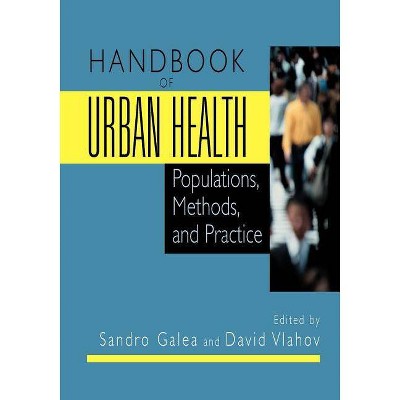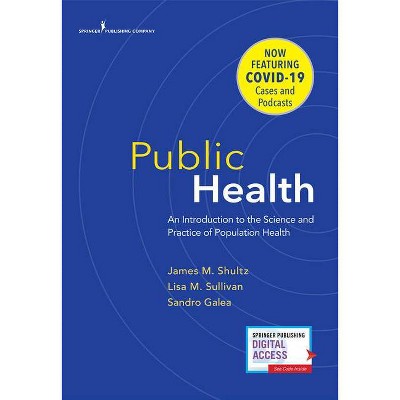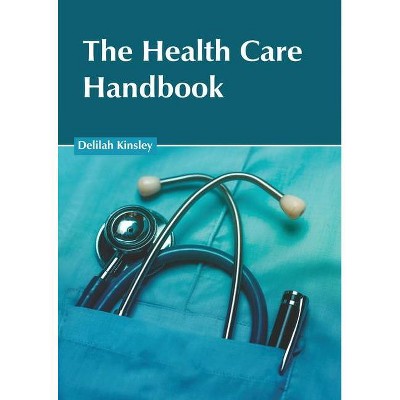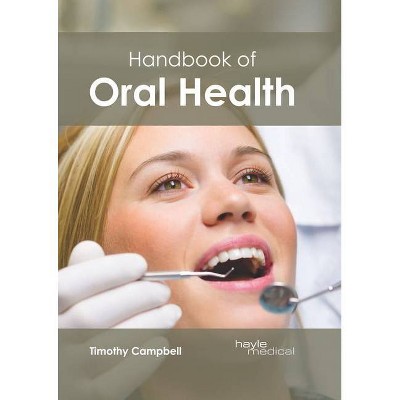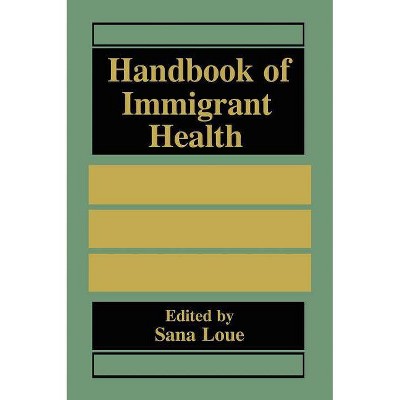Handbook of Urban Health - by Sandro Galea & David Vlahov (Hardcover)
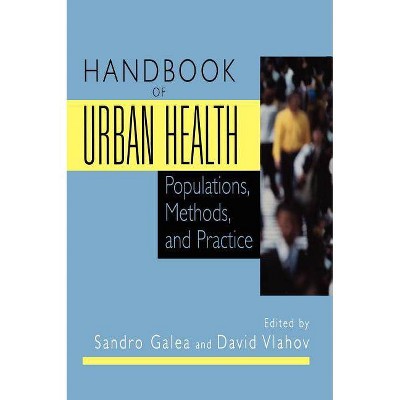
Similar Products
Products of same category from the store
AllProduct info
<p/><br></br><p><b> About the Book </b></p></br></br><p>This book challenges readers to consider the role that cities play in shaping population health and to generate solutions that can make cities healthier places for all those who live in them.</p><p/><br></br><p><b> Book Synopsis </b></p></br></br><p>The editors are two of the most prominent researchers in this area. Both are at the Center for Urban Epidemiologic Studies. David Vlahov is particularly visible and known as the editor of the <strong>Journal of Urban Health</strong>. Sandro Galea is very prominent for his research on urban health; in particularly, research done on PTSD and children post-9/11. </p> <p>Thorough analysis of different populations in urban settings and specific health considerations </p> <p>Useful section on methods for the research audience.</p> <p>Applied in nature with section on prevention and interventions </p> <p>There are over 100 urban health centers in North America and there are no thorough, up-to-date ressources.</p><p/><br></br><p><b> From the Back Cover </b></p></br></br><p>As more people worldwide live in cities, increasingly we need to understand how cities and city living affect population health. Does city living negatively affect health? Conversely, can city living enhance population health and well-being? </p> <p></p> <p>Over forty experts from around the world bring a depth of ideas to the Handbook of Urban Health, making the Handbook a focused resource for a range of health disciplines. The Handbook presents: </p> <p>--A discussion of the health of specific urban populations, among them immigrants, children, the elderly, racial and sexual minorities, the homeless, and the poor. </p> <p></p> <p>--Methods relevant to the study of urban health including epidemiology, research methods, funding and policy issues, urban planning <p></p> <p>--Practical issues for developing healthy cities including interventions, preventive strategies, providing health services, and teaching urban health <p></p> <p>--International perspectives from developing countries and the World Health Organization <p></p> <p>--Integrative chapters that conclude each of the book's sections, bringing together theoretical models with the big picture. <p>A unique professional idea book, research resource, and teaching text, the Handbook of Urban Health challenges readers to consider the role that cities plays in shaping population health and to generate solutions that can make cities healthier places for all those who live there. </p><p/><br></br><p><b> Review Quotes </b></p></br></br><br><p>From the reviews: </p> <p>"This book takes a broad view of urban health, emphasizing urban social factors important to population health. The editors successfully bridge urban health inquiry and public health practice by combining descriptions of issues in urban health, methods used in urban health studies, and examples from practitioners.... Promoting health in cities requires an appreciation of the multiple levels of determinants that shape population health, and this handbook is a good starting point for such appreciation." (Tord Kjellstrom, Visiting Professor of Swedish National Institute of Public Health and Visiting Fellow at the National Centre for Epidemiology and Population Health, Australian National University (Environmental Health Perspectives, January 2006)</p> <p>"<em>Handbook of Urban Health </em>soundly provides the fundamentals on urban health for a wide audience. It will assist health care practitioners in better understanding the strengths and weaknesses of various types of research methods. It is hoped that this book will not sit closed on reference shelves but lie open on desks as it is used to improve the health of all people in our urban world." (Russ Lopez, ScD., MCRP, <em>Journal of the American Medical Association, </em>November 3, 2005)</p> <p>"With its reasonably complete summaries of current knowledge in the area, it is a useful teaching guide and a well-references resource for students, practitioners, and academicians. It covers a remarkably broad range of topics with brief, mostly well-written overviews by academicians and practitioners from across the United States, and it provides an extensive list of references and resources for each topic for readers who want or need more detail." (Howard Spivak, M.D., <em>New England Journal of Medicine</em>, April 20, 2006)</p> <p>"This well-written, well-organized edited volume is a fairly comprehensive handbook on both the research methodology and practice of urban health. ... This is an excellent reference book for anyone working on or studying urban health, policy or planning. Summing Up: Highly recommended. Upper-level undergraduates and above." (K. H. Jacobsen, CHOICE, March, 2006)</p><br>
Price History
Price Archive shows prices from various stores, lets you see history and find the cheapest. There is no actual sale on the website. For all support, inquiry and suggestion messages communication@pricearchive.us
